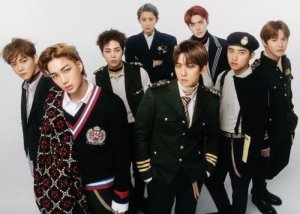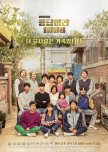
Înapoi în 1988
194 oamenii au considerat această recenzie utilă
Reply 1988 outshines its predecessors. The story primarily takes place in a singular setting, and yet the narrative does not stagnate; it does not become boring or trite; it does not make you sleepy when watching daily interactions of the families. Instead, the story of R1988 pushes at the heart and makes you yearn for friends who love each other this closely, for parents who love each other this much, for a life as simple and yet as hard as these characters' lives were. It takes you out of 2015 and 2016 and supplants you into 1988 where you take that same journey with the characters.
Perhaps the star of the narrative of R1988 is its ability to exert both laughter and tears at the passing of a few minutes, yet it never feels stilted. It brings us richness and variety of character within just the five friends, let alone the parents and siblings surrounding them. With that, we see intricate details of each person's character--like Bora's unspoken love for her parents, or Dong Ryong's inner philosopher, or Jung Hwan's hidden sweetness, or Taek's competitive strength. There are so many elements of character that we see, often unspoken, rise to the surface with the passing of a quick moment or a prolonged incident.
Not only did the narrative of R1988 promote emotions from the viewer, it also brought the winds of unpredictability with it. The writers, in their infinite wisdom, flipped the switch and delivered a romance not built on the standard female lead being the only one in love for the majority of the series nor a male lead who said nothing but ended up the romantic star. It gave the person who stepped up and took a risk the chance to shine (and shine he did-delivering kisses to die for and a sweet chemistry with the lead that was noticeable from the get go). Furthermore, the show gave many couples a chance at love, both new and renewed, lost and found. It was never unrealistic or unfair to anyone in the cast (as some are quick to say); instead, it offered options and chose the best one.
The laughter and tears that made me giggle until wheezing and leak all over my crooked glasses came from an illustrious cast. R88's five friends gave their all to show us their characters' fears, tears, love, admiration, consternation, that random move in Baduk, and so much more. I have to hand it to Ryu Joon Yeol and Park Bo Gum; they made me root for both of them and create #TeamPolyamorous as a hashtag. Their performances were so spot on, and a new star was born. Go Kyung Pyo has always been a personal favorite, and as the sweet, slightly nerdy but quite handsome Sun Woo, he once again stole my heart--this time, though, not with laughter so much as with sweetness. Lee Dong Hwi as Dong Ryong was simply adorable; I would like to see more from him. Hyeri's Duk Seon, though the weakest of these performances, was true to Duk Seon's character--bubbly and outgoing, if not a little bit kooky.
I could talk all day about the parents' roles as well. Ra Mi Ran, Kim Seon Young, and Lee Il Hwa trumped most drama mothers for being the most awesome trio of moms in a drama. They were not only funny, but they all showed signs of vulnerability and strength, and true to form, they were an unstoppable force on screen and in front of their husbands. Speaking of husbands/dads, all the dads were awesome as well, but Kim Sung Kyun takes the cake. His President Kim routine will forever been ingrained in my memory, but also his relationship with Ra Mi Ran showed a great example of how love grows with age.
The music of Reply 1988 also played a special role, not only in the background OST, but in the characters' lives. From Duk Seon trying to win a Walkman to her waiting anxiously outside a concert venue, to Dong Ryong's cover of "I Just Called to Say I Love You," to Ra Mi Ran's special dance, the power of music pervaded the narrative of Reply. It gave us warmth and it made us want to dance along.
Even at 1:30 to 2 hours per episode, I'm going to watch this again. I enjoyed it too much and loved it even more. There was never a dull moment in this series, and I will treasure it for a lifetime. However, now it is time to move on--to leave the streets of Ssangmungdong 1988 and flash forward to Dayton 2016. I look at my neighborhood--siding coming off of roofs, puttering old cars emitting exhaust, the paint on the doors of my house chipping, and the possibility that after I leave in a year or so, it may be the last time I see my home of nearly 22 years. It may be the last time I get to say goodbye to my neighborhood, just as it is my time to say goodbye to my youth.
For all things considered, the first 28 years have been a good run. That is my Reply.
Considerați utilă această recenzie?

Avengers Social Club
53 oamenii au considerat această recenzie utilă
Some might argue this, and that's fine, but as I watched ASC, I admired what I felt was a tightly-written narrative about three women who decided to take a stand in a world that would otherwise tell them to sit down, shut up, keep up appearances, and melt in with the masses. Thus, while ASG is a comedy (and it is incredibly funny), it is also a wonderful social commentary about sticking one's head out, taking a risk, and bringing down corruption.
I can't say enough about the cast, in particular, our three women protagonists, played by Lee Yo Won, Ra Mi Ran, and Myung Se Bin. Their sisterly chemistry is off the charts, and it truly shows in how they interact with each other despite being from different backgrounds. In fact, that might be one of my favorite aspects of this ensemble--the fact that three women of three distinct backgrounds were able (in drama transcript) to rally together. It's something not often seen in dramas. Lee Yo Won as Kim Jung Hye is incredible; one might find her a slight bit rough around the edges at first, but later, she shows amazing gusto with effortless poise. Ra Mi Ran is great as the neighborhood ahjumma with great charisma and an even greater heart; her bond with the two younger women is beautiful. Myung Se Bin does well with her character as well, and her observable growth in the show is great.
Revenge is sweet, of course, and is always better when accompanied by nice background music that adds details to every plan and playful mischievousness to every new revenge-filled venture. In this, the ASC OST shined.
I'm definitely going to watch this again, even if it's just to hear Jung Hye say, "You son of a b****~" once again.
Considerați utilă această recenzie?
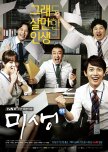
Incomplete Life
170 oamenii au considerat această recenzie utilă
Misaeng's path of story transcends the typical office narrative. It's not just watching office workers struggle, suffer, get praise, or be joyful. We know these characters; we know their faces and names, their pasts, their hang-ups, and their fears. However, we don't know them only as Jang Geu Rae, Oh Sang Shik, Kim Dong Shik, Jang Baek Ki, Ahn Young Yi, or Han Suk Yeol. We KNOW these people; they are our friends, neighbors, acquaintances, and often, ourselves. That's what Misaeng brings in its storytelling, its cinematography, its constant image of being small in a big world and finding what we can do to be significant.
That path was taken by, in my opinion, one of the greatest ensembles I have ever seen in a drama. The entire cast has this way of making one completely identify or not identify with their actions. We see how everyone starts--naive, raw, rough, intimidated, at times, arrogant and ridiculous. Yet we also experience their growth, admissions of success and failure, and admissions of self-centeredness or guilt.
Behind the ensemble, traversing the path of Misaeng was an exciting and memorable soundtrack. Each piece told a story. I enjoyed the somewhat folk storytelling of the OST tracks because it mirrored the narrative of the day-to-day experience of the office workers. One could argue that the music is a character in and of itself as it travels the visual text.
Through its story, cast, and music, Misaeng took me on a journey. At times, I felt like Jang Geu Rae, wondering and asking myself the same questions. That's what I loved about Misaeng. I'm not an office worker, but I identify with their struggle. I ask myself the same questions. I feel defeated at times. At the end of the day, I'm just an incomplete life looking for completion.
Considerați utilă această recenzie?

Six Flying Dragons
144 oamenii au considerat această recenzie utilă
I’m asking the world, on deciding life and death
Is there any difference between politics and swords?
These words, from the song “Muiiya,” a Six Flying Dragons OST, emphasize the human cost of both politics and the sword. Six Flying Dragons, as a drama, does the same when it implores the viewer to contemplate the possible outcomes of choice and the effects of those choices on relationships and society as a whole. If anything, Six Flying Dragons attempts to answer this question without limiting the answer toward one argument. As a result, this drama and its writers Park Sang Yeon and Kim Yeong Hyeon effectively communicate the answer to this vital question through the display of its narrative and characterization.
Six Flying Dragons’ narrative ponders the above questions by its creation of characters and actions that test the functions of relationships and its lack of limitation of the characters to a particular faction of good and evil. Characterizations are layered and multi-faceted; for example, Lee Bang Won’s early desire for justice masks a desire for recognition and power. One is surely good, and the other is dangerous, but they both exist within the character. Similarly, in Jeong Do Jeon, one can argue that desire for the people masks desire for recognition and power. Where history tries (and goes back and forth) on the bad/good spectrum of these two characters, Six Flying Dragons delivers realism--the reality, of course, that all humans possess a bug which may swallow them whole. It renders choices, not fate nor relative determinism, as the progenitor of results, effects, and conclusions while maintaining neutrality in its tone.
The narrative achieves this as a whole by offering twists and turns on a grand scale. Tiny, even miniscule character introductions turn into important aspects of character and scene later on; conversations between characters that are seemingly benign hold importance at the right moment. Between betrayals and loyalty, is there any difference? may be the question asked here; the question may also be Between two forms of government, is there any difference? Six Flying Dragons, then, explores these subtexts throughout its frames, urging the viewer to contemplate them as well.
Another way that the narrative urges viewers to explore these notions is through its cinematography. The cinematography of Six Flying Dragons colors and frames the narrative in much the same way that the characterization does. Through use of light, dark, colors (in particular, the deep scarlet of blood), the viewer sees the overt versus the subvert. Overt actions are more splashed in light; subvert or covert actions cloaked in darkness. In doing so, Six Flying Dragons plays on the eyes of the viewer at times, asking us whether the subvert cannot be seen in the overt and vice versa. Between light and dark, is there any difference?
The crispness of character aspect and portrayal not only resides in the narrative, but also in the acting of Six Flying Dragons. With a stellar cast at the outset, one could argue that potential for this drama’s outcome was high, but it would be remiss to leave it at that. The cast of Six Flying Dragons supersedes any previous notion of greatness accorded to it; they crash down the barrier of greatness and replace it with excellence of the highest caliber.
While extending regard to the entire cast of Six Flying Dragons, the focus of the show, and the most compelling character-wise, is its main cast. Yoo Ah In as Lee Bang Won and Kim Myung Min as Jeong Do Jeon bring depth and mindfulness to each of their characters. They allow the viewer to see all aspects of their personality. Yoo Ah In, in particular, plays Lee Bang Won with such nuance that the viewer sees the inner motivations of Bang Won’s heart clearly and sees the influence choices make even in expression and emotion. Kim Myung Min does the same; the viewer sees a man whose concern for the people gets lost a bit in the desire for political recognition. The phrase, “You are the same as me,” is a common and apt theme when it comes to the characters, and in their brilliant acting, one can see how this phrase manifests itself throughout the narrative.
Along with the two protagonists (as I refuse to name either an antagonist), Six Flying Dragons peppers the narrative with great acting. From young men to hardened warriors, Byun Yo Han (Ddang Sae) and Yoon Kyun Sang (Mu Hyul) provide insights from those who are not political but honor bound and how choices made by others affect them. Shin Se Kyung (Boon Yi) ignites a fire and demonstrates the plight of the people in politics--how, between love and loneliness, is there any difference? Jung Yoo Mi (Yeon Hee) shows the importance of standing up for values in light of all other desires. These are just a few of the many great performances Six Flying Dragons introduces into the dramatic world.
As the narrative and action set the drama, music sets the tone. In Six Flying Dragons, the music glorifies an already-rich narrative with lyrical power and earth-jolting strength. This OST is quite simply one of the best. A favorite, surely, is the song “Muiiya,” a song with so much meaning that pervades the narrative and asks the viewer to contemplate its short lyric for far longer than the song. One cannot get enough of the sound of Six Flying Dragons. If I could rate the OST, I would give it a 10, hands down.
Despite its 50 episode length, I need to rewatch this again. There remains much more for me to glean from the drama’s depths, much more for me to contemplate about character, much more for me to study about politics and choices. From someone who could not watch a long drama until last year, I could not get enough. I could go another 20 or 30 episodes if only to see more of this drama’s richness and characterization.
Overall, Six Flying Dragons provides me with the overarching question, Is there any difference between politics and swords? My answer to that question...well, I will let that remain a mystery to the for the new viewer. Instead, I will sit here in the grey, where these questions keep being pondered. Instead, I implore the new viewer to ask themselves these questions while watching and see if they can find a conclusive answer as well.
Considerați utilă această recenzie?
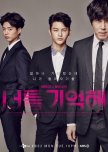
I Remember You's story is not that original; serial killers are everywhere, and exist in every crime drama. However, what I Remember You does with its story is the difference; it's what puts the show in another league. It simultaneously allows the viewer to feel horror and pity toward certain characters, while it allows us to sympathize and chastise others. It doesn't keep its secrets, though. One knows, oftentimes, what will happen. Yet, despite the predictability of outcome, I Remember You captures the viewer in by probing them with these ultimate questions. In so doing, the show remains intriguing, fresh, and wildly entertaining. Does it answer the questions? One will have to see.
The acting in I Remember You was superb. Jang Nara, Seo In Guk, Park Bo Geum, and Choi Won Young brought such complexity to their characters that they too provoked the viewer to cheer for them when they might not otherwise do so. The chemistry of these characters, sometimes posed in times of large-scale situational irony, pricked both fear and at times, humor into the mind. Special mention must also be given to Do Kyungsoo, who, despite possessing a cameo role, prompted loss of sleep and fear so palpable to derive from an angelic face. (I did not sleep well at all after episode 1.)
The music, sneaky and chilling, provided an immensely rich background for the ensuing action. It allowed the intensity of fear, of romance, of horror to perpetuate into the viewer's ears. In addition, the music never faltered in its fit to the actions on screen. Nothing was out of place or jarring.
Overall, I will remember I Remember you. I don't think I could forget its ability to draw me in and make me question my own notions on human nature and evil. I've always enjoyed shows that make me question everything and everyone's intentions and objectives. In this, I Remember You does not disappoint. In fact, it exceeds my initial expectations, and is now a personal favorite, both in its genre and in kdramas altogether.
Considerați utilă această recenzie?
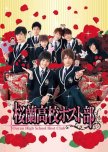
Ouran High School Host Club
23 oamenii au considerat această recenzie utilă
I wasn't disappointed, either. The Ouran High School Host Club drama truly was the icing on Hunny-sempai's keki for me. I love the drama, the cast, and the entire adaptation of Bisco Hatori's fantastic manga on screen.
In particular, I find that Yamamoto Yusuke plays Tamaki well (I knew he could do it--he is awesome). I don't understand the arguments about his acting ability based on his hair color--which in the manga isn't blonde anyway. A character which surprised me was Daito Shunsuke's Kyouya. Kyouya was my least favorite character in Ouran until the drama. He's still not my favorite, but I like him much more now (that has nothing to do with Daito's suaveness, whatsoever, lol). I also felt that Haruna was a good Haruhi, and Chiba is an awesome Hunny. The Takagi Twins never fail to disappoint, either.
Plot-wise, I feel that the drama did the best it could with the ridiculous time constraints put on it by the network. As the first drama I've ever watched in Real Time, I never once did not laugh during an episode. Everything worked well, and it could not get me more excited for the movie.
Overall, I will rewatch Ouran again because it's that good, it's my favorite manga, and it's a good drama on sad days.
Considerați utilă această recenzie?
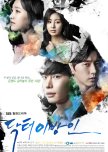
Doctorul Fugar
197 oamenii au considerat această recenzie utilă
That "death" was almost predestined by Doctor Stranger's plot. At first, the show was thrilling; it's focus on Park Hoon and the things a doctor has to do gripped me. Yet, a show that has one weak character from the beginning will often find that weak character to be the cause of its entire downfall. That's what happened here. A weak character was then joined by mediocre characters, and the whole show had to rely on one really strong character (Park Hoon) to bolster the story. That weak character, though, thread through Park Hoon's performance, made a wrong stitch, and unraveled it altogether. (Don't even get me started on the ending.)
Acting-wise, it was either a beating heart or a flat line. Lee Jong Suk, Kang Sora, and Park Hae Jin gave a lot to their roles. In Jong Suk's case, his acting showed more depth than his previous roles and made me feel for Park Hoon in a real way. Unfortunately, the flat-lined actress Jin Se Yeon, brought as much character as character development for her character, that is to say, none. She tripped and stumbled over every scene that required any emotion other than a blank face that clearly said, "I don't know what the hell I'm doing."
Music-wise, I have no complaints.
Instead of asking, "Will you re-watch this?," I would say the question should be, "Do I have to re-watch this?"
Overall, I can't waste any more words than the characters did over dying patients on this drama.
Considerați utilă această recenzie?
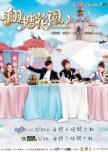
Park Jung Min is seriously adorable in this, so if you are a fan, you will enjoy him in Korean (for parts) and in Taiwanese (dubbed). He brings so much to the character of Han Ji/Pu Xi Huan. Even though this is a comedy, he brings a lot of cute expressions that make him that much funnier.
The music for this drama is fairly well done. The opening theme is very cute, and on film, the opening theme is probably one of the most creative and bright in dramaland. The dramatic moment song is also beautiful. Both songs will stick with you.
The story itself is rather light hearted, although there are elements of melo laced within. Like any rich boy/ not as well-off girl drama with brothers, there is also family drama. Those parts are harder to get through, particularly in the earlier episodes. The drama as a whole doesn't really pick up, in my opinion, until episode 5, but the first four episodes are important for story development (so don't skip them.)
Overall, I found in Fondant Garden a much better drama than I expected from the outset. For a pick up drama (not one I wanted to watch initially), I rank it up there. It certainly is one of my favorite Taiwanese dramas, at any rate.
Considerați utilă această recenzie?
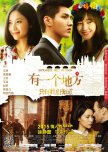
Somewhere Only We Know
26 oamenii au considerat această recenzie utilă
The story is simple, but surprisingly compelling. We see Jin Tian's (Wang Likun) journey to a place, to Prague. At first, it is just a beautiful city meant to help her heal; it's a city that her only family member once lived. Later, though, and interwoven with her own love story, Prague becomes that place of being and becoming a new person. What I enjoyed most is how interwoven Jin Tian and Ze Yang's story was with Lan Xin and Dr. Novak's. The links and flashbacks gave a beautiful, yet sorrowful meaning to the idea of having a place and of being in love.
Despite a group of young, fairly inexperienced actors, Somewhere Only We Know featured bright moments. The chemistry between Wang Likun (Jin Tian) and Wu Yi Fan (Ze Yang) was sweet; their interactions with Sophia (Ni Ni) were definite highlights of the film. Moreover, they showed an awkwardness that fit well with two young people in love. Plus, the movie showcased Wu Yi Fan's ability to be a "cold guy," a nice guy, a sweet guy, and best of all, a silly guy. Xu Jinglei took a major risk, and I believe it paid off. Last but not least, Xu Jinglei was awesome herself as the young Lan Xin. She gave off a grace and beauty that brought me to tears at its sincerity.
I loved the music in the film! From traditional Czech music to Frankie Valli's "Can't Take My Eyes Off You" to Wu Yi Fan's "There Is A Place," the music captured that sweetness of new love, of old love, of lost love, and of found love.
Probably my only complaint with the movie lies in it's use of English instead of Czech when there are longer conversations with non-Chinese characters (Dr. Novak, especially). I don't hate the choice necessarily, but I would have liked there to be more Czech involved in the film.
Of course I'm going to rewatch this again and again. It's sweet, funny, yet also insightful. On a fangirl note, why wouldn't I watch it again?
Overall, I give Somewhere Only We Know a 10 because I enjoyed the film so much. I laughed and cried (I dabbed tears at several points during the film), and I thoroughly felt the love between the characters. I also enjoyed seeing the beauty of Prague; I really, really want to visit it now. It gave a wonderful environment and air to encase the beautiful stories within the film. The film made me want to find my own place as well.
Considerați utilă această recenzie?
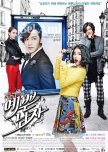
At times, the storyline was solid to fair, but eventually, the story got caught up in its own premise (conquering 10 women) that it left very little room for any personal growth on the part of its female lead and severely understated the role of the other lead male. In fact, the story focused much more on the growth of one of the supporting roles than any emotional investment in other characters.
Furthermore, the story focused so much on the typical birth secret tropes that it lost a lot of its early humor. The story was at its best when Bo Tong and David did funny things, not when 95% of the episode dealt with the MG Group's machinations.
That being said, I feel the story limited its actors in a way. As this was Jang Geun Suk's comeback role, the character of Dokgo Ma Te seemed awfully similar to his previous roles, in particular that of Hwang Tae Kyung. This drama did nothing with JGS' acting that I hadn't already seen from him. IU, on the other hand, had a very vivacious character early on, but the story kept her rather one-note toward the end. The only decent performance was Lee Jang Woo's David Choi, which at least had me feeling for him and who was as beautiful inside as he was outside.
The only song from the drama which I remember off-hand was David's song. The rest of the OST didn't really resonate with me and seemed much more like surface music rather than fused with the storyline.
I will rewatch this only for David; really, I'm not even sure if I can rewatch it. In that regard, Bel Ami was just a surface drama; it's not memorable or great. It's really just botong.
Considerați utilă această recenzie?

Suflete Pereche
22 oamenii au considerat această recenzie utilă
Master's Sun has it all: horror, romance, a healthy bit of angst, and a touch of sunlight (or is it a beam?)that rises in the heart and fills the viewer with warm fuzzies and peals of laughter.
One of the greatest strengths of the show was it's acting. Gong Hyo Jin and So Ji Sub absolutely oozed chemistry, appeal, and gave us such balanced but fantastic performances. So Ji Sub made me fall for his acting (and him) by the first episode. Seo In Guk was great as well, and at times, had me falling for both of the leads.
Storywise, I feel that the show did its best to indicate that the ghostly world isn't as scary as it seems, which plays well into the evolution of Gong Shil, Joong Won, and even Kang Woo. However, there were times where I felt that the story forgot earlier elements or threw them away. Nevertheless, the story was fairly solid.
Overall, I really enjoyed Master's Sun. When I say "really enjoyed," I mean that I'm already having separation anxiety from the brightness that was this drama.
I will definitely be watching this again.
Considerați utilă această recenzie?
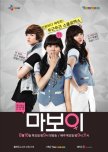
I really enjoyed seeing some of the younger up and coming stars and the acting, while green, was cute and it was surrounded by a cute story and love triangle (which are commonly uncute).
Overall, I'll probably rewatch Ma Boy many times, because it just lifted my spirits with its sweetness.
Considerați utilă această recenzie?
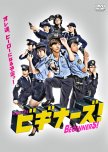
Although this drama was on my watch list long before it premiered, I wasn't expecting much. I thought it would be okay and possibly pretty funny. It was both of those things, yet it was much more.
Beginners!, for me, dove deeper than your typical do-your-best, slice-of-life type drama. It included each and every characters quirks and fears; in other words, it gives us the motivations and objectives of each character in full view (even if that reveal is step by step, episode by episode).
Storywise, it was fairly general, but the acting made up for that in my opinion. My favorites in the drama (not that I'm biased) were Taipi and Hiromitsu. They were both strong and had the most convincing characters in the show.
I also felt that Gouriki Ayame's performance as Hiro, though stilted at times, was much more likeable than say her performance in Asuko March! She did have very good chemistry with Fujigaya, at any rate.
I can't complain about the music. Wannabe by Kis-My-Ft2 is a great song for this drama, and it is always stuck in my head.
Overall, Beginners! comes out with a lot of plucky, heart-warming moments (and even a little romance). It's also just a lot of fun.
Considerați utilă această recenzie?
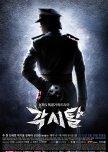
The Bridal Mask
16 oamenii au considerat această recenzie utilă
I cannot say enough about Gaksital's storyline; it is simply brillant. Yes, it is a revenge drama; yes, there is romance, but underlying these simple constructions is a toying with who we should like/dislike, who we should care for or about, and what we should think of particular situations. What I mean is, of course, that although the story clearly establishes a side, it gives us the choice of several different reactions to that side, all of which are thrilling and compelling.
Certainly, the acting in Gaksital furthered the story's sentiments very well. Both Joo Won and Park Ki Woong portray their roles well, particularly in emotional scenes. I also loved Han Chae Ah in this. Jin Se Yeon was a weaker actress, but I still liked her.
The OST brought out all the stops, from the big band to the epic opretic pieces placed at just the right moment. I loved the music so much that I would dream of it often.
Overall, Gaksital gives everything in its search to tell the story of a hero, the story of a villain, and the story of life in the middle of an occupation. It was heartrending and wrenching, terrible and wonderful at the same time. I can't wait to watch it again!
Considerați utilă această recenzie?
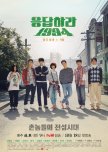
One way in which Reply 1994 adhered to my heart was its story. No, I don't mean the love story, although I enjoyed that too, but the idea of what "family" is and what "family" means. Throughout intense scenes of sweetness and laughter, I found that meaning. Were there some draggy scenes? Sure, but with even those, Reply 1994 brought everything back to the concept of family--of how relationships develop, mature, endure, and survive life. Each and every moment, in my opinion, brought me toward that realization, and it was that which stuck with me the most.
The bonding (the adhesive, if you will) of this drama came from commanding, inspiring, insightful, and heartfelt performances by every one of the main cast. Other than Sung Dong Il and Lee Il Hwa, who played the best parents in dramaland yet again, my favorite actors were Yoo Yoon Seok as Chilbongie, Jung Woo as Trash, and (my personal favorite) Kim Sung Kyun as Samcheonpo. The intensity of these three characters/actors propelled me to see even the little moments (the subtle smiles of Samcheonpo,the serious face of Chilbong, the raw emotion of Trash behind a poker face)and feel every kind of emotion as a result.
Furthermore, I commend Go Ara for her image reversal and complex handling of Sung Na Jeong. She was great! My biggest surprise, however, was how standout the performances of Min Do Hee (Yoon Jin) and Baro (Binggrae) were. Each took side characters and delivered them with heart and dedication. Because of all of these people, that sense of "family" came alive.
Those of us who remember mixtapes will agree that those mixtapes were usually songs that stuck with you. Reply 1994's mixtape does not fail in such a comparison. Every moment was felt in the music as well: happiness, sadness, love, and of course, the sense of "family." The Reply 1994 family bonded often around music, and I think that I bonded along with them.
If Reply 1994 taught me one important lesson, it was this: family is having someone to share everything with, no matter the relationship. It achieved this by developing relationships of all levels and doing it well. Not only that, Reply 1994 included us in that relationship through its story, characters, music, and overall, its message, which begs for a reply.
This is my Reply.
Considerați utilă această recenzie?

